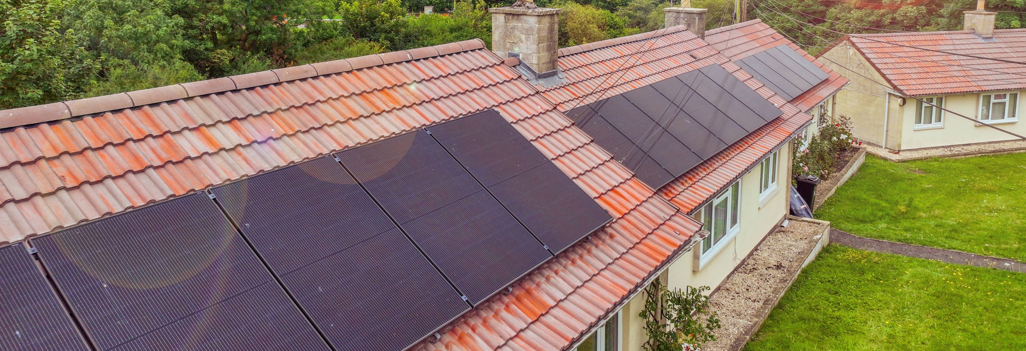What does it all mean?
You might hear some technical terms or abbreviations that you haven't come across before. Here's a quick guide to some of the most commonly used terms:
Heating and hot water
- Quantum Heating: A modern electric heating system that is more efficient and cheaper to run than old storage heaters. It stores heat during cheaper hours and releases it when needed.
- PV Panels: PV is a short term for “photovoltaic” panels (also known as solar panels). They are put on your roof and turn sunlight into electricity for your home.
- PV Battery Storage: A battery that helps store extra electricity from your solar panels so you can use it later, even when the sun isn’t shining.
- Cylinder Jackets: An insulating cover for your hot water cylinder. It keeps the water warmer for longer, saving energy required to reheat your hot water.
Insulation
- CWI (Cavity Wall Insulation): Insulation added between the two layers of your outside walls to stop heat from escaping.
- EWI (External Wall Insulation): Insulation fixed to the outside of your house walls to help keep heat in.
- IWI (Internal Wall Insulation): Insulation added to the inside walls of your home. They are useful when external wall insulation isn’t suitable.
- Loft Insulation: Material placed in your loft or attic to stop heat from rising and escaping through the roof.
- Eaves Insulation: Extra insulation fitted at the edge of the roof, where the roof meets the walls. It helps seal any gaps which improves the overall insulation of your home.
- Draughtproofing: Sealing up small gaps around doors, windows, and floors to stop cold air from getting in and warm air from escaping.
Ventilation
- Extractors: fans that remove stuffy air from bathrooms or kitchens.
- Door undercuts: small gaps under doors to let fresh air flow through the home, especially when using extractor fans.
Energy use
- Tariff Changes: Switching to a different energy plan that might be cheaper.
- Low Energy Lighting: Light bulbs that use less electricity. They last longer and cost less to run which provides more savings in the long run.

